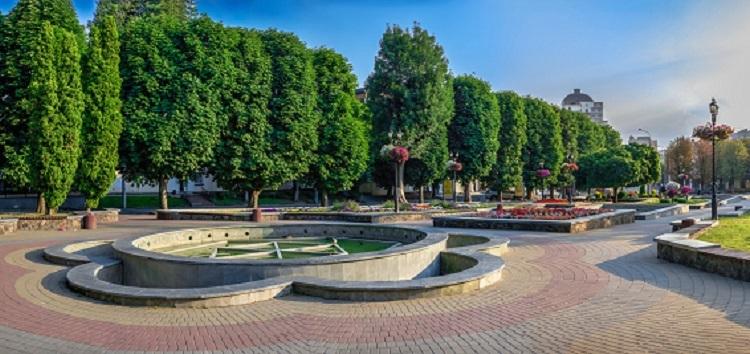- EBRD resumes urban sustainability work with city of Khmelnytskyi in western Ukraine
- Khmelnytskyi’s Green City Action Plan to address inflows of internally displaced people
- Donor funding for EBRD work with Khmelnytskyi comes from Sweden
The EBRD has resumed work on urban sustainability with the western Ukrainian city of Khmelnytskyi through its flagship EBRD Green Cities programme. The cooperation had been on hold since Russia invaded Ukraine on 24 February.
Khmelnytskyi is one of several Ukrainian cities to have joined the €5 billion EBRD Green Cities programme to plan a more livable urban space for its more than 280,000 esidents. It has suffered no physical damage as a result of the war but has experienced large inflows of internally displaced people (IDPs), putting strain on city services.
EBRD and Khmelnytskyi officials resumed work on the city’s Green City Action Plan (GCAP) on 23 June, agreeing to expand the GCAP’s scope to reflect current reality by adding a needs assessment covering the IDPs now living there. The city has already published the IDP questionnaire on which it will base its future policy. Funding for the add-on to the plan will be provided by Sweden.
Khmelnytskyi joined the programme in 2019, and has been working since then with the EBRD on an action plan tailored to its own needs. Its first project signed in October 2020 was to improve solid waste management.
The EBRD Green Cities programme was established in 2016. Since then, it has assisted more than 50 cities on three continents, addressing their environmental issues and improving the quality of life of residents.
With new funding approved during the COP26 climate conference in November 2021, more than €5 billion are now dedicated to supporting EBRD Green Cities. The programme has also mobilised significant co-finance. This includes €87 million from the Green Climate Fund (GCF) and US$ 17.8 million from the Climate Investment Funds (CIF)’s Clean Technology Fund, as well as technical cooperation from the GCF and a number of EBRD bilateral donors.
The programme makes a major contribution to tackling climate change. Investments – from reducing building emissions to increasing the efficiency of transport ‒ help save nearly 1.4 million tonnes of carbon emissions per year, the equivalent of 296,000 cars.
The EBRD is the largest institutional investor in Ukraine. It has pledged to provide €1 billion of support for the country’s economy this year. Its support focuses on vital infrastructure, food and energy security, trade and the pharmaceutical industry. When conditions permit the EBRD also stands ready to invest in reconstruction in Ukraine.




